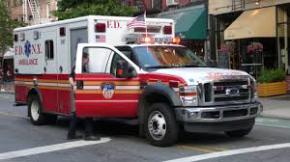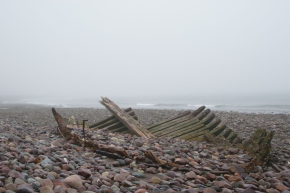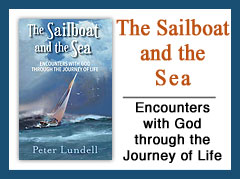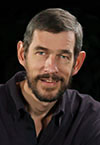Here are unpublished short stories that I will occasionally rotate and update until they’re published in my second volume of Short Stories for the Soul. If you haven’t read Short Stories for the Soul, Book 1, do check it out on the Bookstore page.
In the Alley
Jamal
Dad beat me every time he got drunk, and he got drunk every day. The one time I can remember he din’t beat me was when he mixed—I guess it was wine—into my Kool-Aid. Then he laughed hisself onto the floor when I flopped around drunk, knocked over a lamp, and eventually threw up.
When the po-lice came to the front door one day, I hid behind the edge of the couch and watched. A white cop and a black one. They talked to my old man, and I expected him to try and beat them up too. He was that crazy. But I couldn’t believe what he did. Held his arms straight out even before they pulled out the handcuffs. Like he wanted to be taken away. Maybe he knew. Knew he was good for nothin’, would never hold a job, and couldn’t control hisself no matter what. He stayed in jail and never came home. Mama said he did somethin’ bad and she weren’t gonna bail him out, and no one else did neither.
After that seems like she try to take his place beating me, ‘cept not every day. Only when she got all riled up from a bad day. Then she yell at me and only slap me once. She go in her room and cry on the bed.
She let me go to court to see Dad stand in front of a judge behind a big huge desk. The judge was a pasty white man in a big black robe. She said I might as well get used to it. I din’t ask what “it” was, but I figure it probably meant a lot a things. Dad went to prison, and I never saw him again. A man and a lady from the gov’ment came to the door one day. They was all dressed up and actin’ stiff. Sat Mama down and she insisted I be there, said she never wanna baby me. They told us Dad got in a real bad fight and died right there in the prison. Mama just hung her head with her face all puffy and eyes watery. I din’t say nothin’. Told myself, Don’t feel happy ‘cause ain’t nobody supposed to be happy when their dad dies. But I was glad he wouldn’t come home no more.
That’s when Mama started drinking like Dad did. Wern’t long before she lost her job at the fabric factory. One Saturday when I was watchin’ cartoons, and Mama was drunk on the couch, Grandma showed up and had a big fight with Mama. After that some more gov’ment people came and took me away from Mama. A man held Mama back while she was hollerin’, and a lady was all nice to me, wipin’ my tears and tellin’ me I’d be better off. She let me take all the stuff I wanted from my room. Wern’t much, and it all fit in two black garbage bags.
They took me to Grandma’s house to live. Grandma was good to me, better then anyone ever was to me in my life. That’s all I wanted. Someone to love me. I din’t need no money, no fancy stuff. Even goin’ to school din’t mean nothin’ until Grandma loved me. She hold me tight against her big tummy and tell me I was precious.
Grandma took me to church every Sunday. Dressed me all up, ‘cause all them folks at church come lookin’ like they going to a weddin’. Mens in suits and shiny ties. Ladies with hats so big I thought they’d tip over. The whole ladies that is, not just the hats.
I liked church ‘cause it was the only place, besides Grandma’s house and school, where people din’t get drunk all the time. For a long time I din’t know what they was talking ‘bout there. But the preacher always got everybody excited. People standin’, shoutin’, wavin’ their arms, organ playin’ right in the middle of the preacher’s talkin’. They’d hoot and holler like they was at a football game. After church they all hug me an’ tell me I’s a fine young man. Finally they got me to believe God loved me, din’t hate me. I figured maybe that had somethin’ to do with why Grandma loved me.
When I got older she tried so hard to keep me out of the gangs. They come after me over an’ over. Threaten to hurt me bad if I din’t join. I just ‘bout did. One day I was walkin’ home from the store with Grandma. Without saying nothin’ she turned into the yard of the house where these guys hanged out. Set her bags down and knocked right on the door. Loud. I tried to pull her back. Even the po-lice don’t do stuff like that, ’sept they got at least two guys with guns ready. I wanted to run away, but I couldn’t leave her there after all she done for me. Door opened. Big dude named Leroy stared at her. He’s one that if you see him on the sidewalk, you cross the street to the other side. He din’t have no shirt on—tattoos and scars everywhere. Wan’t afraid of nobody, but he din’t know what to do with a little old lady smiling at him. Then she opened her mouth. Oh my. Told him if they wanted to take me, they had to kill her first. Spread out her arms and told Leroy to shoot her right then and there. I about died of shock at the bottom of the steps. His homies behind him was hootin’ and laughin’. He just cussed at her, told her she was crazy, and shut the door. We din’t say nothin’ the rest of the way home.
After that them gangbangers made fun of me a few times, but they never came after me. Half of them dead or in jail now.
The preacher say we got souls and we got bodies. I figure Grandma saved my life twice.
__________
Derek
Dad founded his own tech company. So I’m kind of an offspring of Silicon Valley. But I never really lived up to it. I was more into partying than sitting in front of computer screens. Mom and Dad took my brother, sister, and me on family trips every year. I liked France and Italy the most. They’ve both got great hotels, great beaches, and great wine. Every winter we all skied at Aspen or Vail or Breckenridge.
The day I got my license Dad took me straight out and bought me a new BMW. He promised me that when I got a college degree, I’d get an upgrade. He was partial to Jaguars. I got a bigger allowance in a week than most kids got in a year, so I kind of did whatever I wanted. As you might suspect, I was popular with the chicks. I knew they were mostly after what they could get by hanging around me, but I didn’t care. I used them just as much.
In high school I started with booze and marijuana, mostly at the beach or at one of Dad’s rental properties. I had access to the keys, and there was always an empty unit somewhere. I’d bring my friends or sometimes girls. The groups of girls watched out for each other. When they came alone, they usually let me do anything I wanted.
I graduated to cocaine. It’s almost a natural progression, like taking Algebra 1 and 2 then progressing to Calculus. But I never did take Calculus, much to my dad’s disappointment. Too much cocaine I guess. Also because I watched what really went on in his life—and in the lives of people all around him, even in the corporations that contracted with him. And I observed the nature of the whole corporate-political-media world. I saw a lot of money, sex, and power. So I concluded that if life is about making money, having sex, and grabbing power—and generally doing what’s necessary to get what you want—I might as well get lots of experience early on.
No matter how much cocaine or whatever else I did, it was easy for me. I had access to all the money I wanted. If I ran low, I’d just tell my parents I wanted to take my friends out. I think they thought that if they kept being nice to me, I’d eventually come around. It seemed to work with my brother, but he liked computer screens, and my sister went gonzo on art and interior design. The only dealers I knew were on the street corners. They seemed to look for me as much as I looked for them. I don’t know why I snorted and shot up so much except I didn’t have a good reason not to. I was an okay surfer, but nothing else interested me much.
Every time I looked at the existential issues of life, like why we’re here, I always came up empty. That’s what always got me, the sense of emptiness. It seemed to hover around me like a cloud that never went away. I felt hollow inside, like an empty beer can. I could fill myself up as much as I wanted, but I’d just pee it all out.
College was up and down for me. Besides the parties I learned all the sophisticated reasons why the natural world formed and runs itself, and why there’s no higher authority than human reason—which is relative and always changes. I learned inspiring things, like the most logical thing a person can do is commit suicide, or how unfortunate it is that humans are related to boring chimps as opposed to another class of monkey that engages in frequent orgies.
So I’d just shoot up. And one day I tried heroin. Wasn’t long before I couldn’t go to classes anymore, and I got kicked out. That was one of the worst days of my life, except I still found myself more interested in getting my next fix than in the fact that my life was crashing. In my more lucid moments, I was too ashamed to see my parents, so I went south, where it was warmer, to Venice Beach in LA. Drugs were easy enough to get there, but I had no more money, and the residents didn’t like having junkies lying around in front of their picket fences. Cops didn’t either. Skid row had a lot more of everything, except beach. Shelters, showers, meals, medical and dental treatment, you name it—and drugs, whenever the LAPD wasn’t cruising by every other minute.
Since I no longer had my mom-and-dad-vending-machine, I sold myself. Mostly to rich gay guys in cars like I used to drive. They’d slow down enough to make eye contact, and things would happen rather quickly.
I . . . I tried to tell myself I was free and doing what I wanted. I tried to tell myself what I was doing was fun. In reality I dragged myself into a living hell. And the more I prostituted myself and shot up whatever I could get, the deeper I went.
I was a wreck of a human being. But I didn’t really care anymore. I had become incapable of caring. I only wanted my next fix. Nothing else mattered. I didn’t even ask the existential questions anymore. Everything I wanted was in that white powder, and I would do anything—anything—for another hit.
So I started to wonder if I were already dead and living in hell. The fact that I was still breathing didn’t seem to matter.
__________
The initial pshhht of the 911 radio dispatch gave way to the lovely cadence of a woman’s voice: “Squad 19, do you read me?”
The emergency medical technician pushed the switch on his radio mic. “Loud and clear.”
“Situation in an alley off San Pedro, on the east side, between Fifth Street and Sixth.”
“Alley, San Pedro, east side, between Fifth and Sixth.”
“Correct. White male down. Apparent drug overdose.”
“Squad 19 is ready and on our way.”
“Copy that.”
Rick, the EMT, called to his partner, “Let’s roll!”
The two slung on their coats, made quick visual checks on their equipment, and climbed into their rig. As they pulled out along the factories and warehouses, their lights and siren reawakened the quiet, sun-drenched afternoon on the short ride toward skid row.
On their arrival, two squad cars with lights flashing sat in front of the ally, blocking one lane of traffic. The alley extended between two brick buildings. A chain-link gate, topped with razor wire, barricaded the far end. One of the cars moved to open the way as Rick backed the ambulance to the sidewalk.
From the back of the rig, the two EMTs pulled out the first aid kit, oxygen bag, resuscitator, and defibrillator. Then they rushed past the spectators to the patient. The cracked-and-broken asphalt beneath him spread like a spider’s web. He lay half curled on his side, as if the web had finally and irrevocably entangled him.
As the police held gawkers back, the two knelt on either side of the man. Quick check. Oxygen mask over the man’s face. Cut the shirt open, defibrillator pads on upper right and middle left of the chest.
The man’s body jittered, and the chest expanded.
As the two monitored progress, Rick pointed to the ground beside the man. “Jamal, check that out.”
Jamal examined the array, while glancing back at the defibrillator screen.
Across the asphalt lay a syringe, a spoon, a lighter, and an open wallet. The man’s driver’s license had fallen partially out. Jamal looked closely. “His name’s Derek. And get this, his address is in Cupertino.”
“What? Dude, he sure fell a long way.”
Under the wallet was a piece of paper. Jamal picked it up. He read it, squinted, looked closer, and reread it. “You gotta be kidding me.”
On it was a note: If I’m still alive, do not revive me unless you can tell me the purpose of life.
Jamal read it aloud to Rick. Then he reread each word to himself. He stilled.
“Watch your monitor,” Rick said flatly.
“On it.” Jamal set the note down and leaned toward the unit. He stared into the face of the man on the ground.
“It looks like this guy’s going to come through.”
“Oh, yeah. He has to now.”
“So he’ll need a lesson on life, or he’ll be ticked off.” Rick smiled. “We might be in trouble.”
Jamal slowly shook his head. “My life was crap until my grandma took me in. It don’t matter about your money. It matters about who you are.”
“So you’ll give him the lesson.”
“He needs it as much as he needs the oxygen you’re giving him.” He sat back. “And it don’t matter where you’re from as much as where you’re going.”
“As much as he needs oxygen.”
The Woman by the Boat
Every day the woman came. Fog shrouded the so-called beach, a slope of smooth, gray, fist-sized rocks that lay mostly above or below the cold Atlantic waters, depending on the tide. The hazy gray lingered late into the morning, as it did most every day.
She would emerge from her two-room shack on the south end of the beach and wobble over the rocks as they clacked under her feet.
Then she sat at her shrine.
This place of religious devotion was the remains of a twenty-foot wooden boat. The planks of the upper hull had been scavenged—leaving the bottom, too wet for firewood, and the ribs that curved up like a human ribcage.
Sometimes she rocked quietly. Other times she bent forward and sighed. Most of the time she stared at the skeletal boat or at the sea, her hand caressing a wooden rib. Day after day, for a year and a half since the accident.
Even in winter she went, bundled in a parka, slipping and often falling when the rocks were slick with ice or snow.
__________
Each Wednesday, after the woman sat at the boat’s remains, she would trudge up the hill to the village market to sell what she had knitted the previous week. Some villagers looked at her crafts so they could get close to her and see if they could discover anything beyond the sad eyes and weak smile. Those who bought said her knits were the finest to be found and that those who didn’t buy were gossiping fools.
Along with the weather and the fishermen’s catches, the woman was a prime source of conversation: “She’s a paragon of virtue, the most faithful wife,” went one opinion. Others said, “She’s crazy. But we don’t have a loony bin.” More practical folks suggested, “The constable needs to take her away.” But he said crying by a boat didn’t break any laws. “Then send the town preacher to console her and get her back to normal.” But the preacher had tried.
__________
One old man didn’t need to see her at the market. Charles lived in a cottage at the north end of the rocky beach. Boat parts, nets, harpoons, and tackle decorated his home inside and out. He had survived a lifetime on the sea. And he had survived after returning one day to find his own wife lifeless on the floor.
The villagers had long ago stopped asking him about the woman because he always told them, “Ask her yourself.”
His son had gone to find a salaried job in St. John’s a hundred miles away. Life in a Newfoundland fishing village did not appeal. Except for holiday visits, the woman was the only family Charles had. Through the window above his kitchen basin he watched her, day after day. If she didn’t appear, he made his way to her shack to check on her. When others appeared nearby, whether fishermen or boys throwing rocks into the water, he watched to make sure they didn’t mistreat her.
Through the previous summer he’d gone out to talk to her many times. She listened, but she didn’t respond.
Another gray morning Charles peered out his window until she approached the boat wreck and sat by it, like part of the wreckage itself. He said to himself, “A year and a half is too long.” He put on his shoes and jacket.
He used a walking stick to keep his balance on the rocks until he could lean against the beam that had once been the boat’s prow.
“Jane.” He waited for her to make eye contact.
She looked up with reluctance in her eyes.
“How long will you keep doing this?”
She adjusted herself on the rocks and leaned against a rib. Then looked out at the sea.
“Jane! No more silence. You have to move past this.”
“Do I?”
“Yes. You do.”
Her gaze turned back to him. “Why?”
“Why?” he muttered to himself. “Because . . .” He shook his head, then stammered as one does when words elude the tongue. “Because you need to start over again. A new husband, a new family. There are men up there who could use a wife. Who need a good woman like you.” He paused and she remained still. “You need a good husband too.”
“I’m no good for that any more. You of all people should know.”
“No. You can start over again.” He knelt with one knee to the rocks and leaned forward. “You could be happy again—if you allow yourself.”
“I don’t want to be happy.”
“You’re deceiving yourself. I remember how happy you were as a child and how happy you were with Bobby. I have no doubt you could be happy again.”
“It would be wrong.” She shook her head. “Immoral.”
He looked down with a heavy breath. “Immoral to be happy.”
“You know I told him to go out that day. That we needed a good catch to pay our bills.” She dug her nails into a boat rib. “You’d gone out in weather like that. That’s what men do. I even said a prayer and told him he’d be okay.”
Charles clenched his teeth and looked away from her. “I know,” he whispered.
A gull cawed as it swooped by and landed near the water. It stepped from stone to stone, scanning and pecking. An ordinary day of its ordinary life. It glanced at them, whether hoping for food or wary of a sudden move. Then it strutted away to leave them in their disconnected world.
Her nails still in the wood, her eyes were as vacant as her voice, “You don’t need to keep coming out here.”
“I care about you. You’ve grieved long enough.”
She looked down and folded her hands in her lap.
“Look at you. Since Bobby’s been gone, you haven’t had the money to buy clothes or to keep up your home. It’s run down.”
“The roof’s still standing.”
“It leaks.”
“I have buckets.”
“And you don’t have enough to eat. You’ve lost weight.”
“Women are always trying to lose weight.”
Charles stood and growled in disapproval. “I will not let you continue doing this.”
“You can’t stop me.”
The two allowed a brief stillness to settle. He leaned against the prow and she against a rib—like two opposing remnants of the accident that refused to concede. The shroud of gray slowly lifted above the hill that abutted the beach. Foot-high waves washed the shoreline. Their slow, rhythmic gush rinsed so much away, yet nothing seemed able to wash away the death shroud in which she wrapped herself.
“Life goes on, Jane, whether you like it or not.” He sighed. “And you might as well get on with it. Life is slow in this village, but it doesn’t stop. You’re pretending it stopped.”
“Leave me alone.”
“Accidents happen. Boats sink in storms. Fishermen drown. That’s part of the deal, always has been. You knew that when you married Bobby.”
Jane remained quiet.
Charles lifted his hands with exasperation. “He would have gone out whether you told him to or not.”
“No, he wouldn’t have.”
“It was his nature to hesitate while he sized up a difficulty. Then he would pursue it with everything he had.”
“You’re just trying to make me feel better. I encouraged him.”
“None of us knew the waves would pound him into the shoals.”
“I should have known.”
“How could you? Winds and currents shift. I survived storms and so did he. But that one he didn’t.” Charles breathed deeply and stared at the gray water. “A person doesn’t even need storms to die. A wife could be lying on the kitchen floor when her husband comes home.”
Jane let out a high-pitched cry like a whining teapot, its pressure whistling out.
Charles put a hand over his face and slowly drew it down. As she quieted, he said, “Life continues whether you like it or not.”
She shook her head.
“Your endless grief is your own choice, Jane. I will not feel sorry for you.”
She gathered herself enough to speak. “I’m not asking you to.”
“But I can’t bear seeing you do this to yourself.”
“Then look at something else.”
“No. I care about you, and I won’t just let you drown yourself in self-condemnation. Or self-pity.”
“Neither of the above.”
“Oh? Then why are you acting this way?” He pursed his lips, chest rising and falling under his breath. “I’ll bet every day you tell yourself it was your fault and then feel sorry for yourself because of it.”
She narrowed her eyes and seethed.
“Let it go.”
She only stared at him.
As if to avoid her glare, he turned away and held the boat’s prow.
The ordinary world around them continued to wash waves onto the shore and send gulls circling and cawing as they always did, regardless of storms at sea or storms in people’s hearts.
Charles started to speak but seemed to pull his words back. He hesitated then turned to her. “And you can’t be feeling sorry for Bobby. From his childhood he always had a big heart. He cared about other people, no matter who they were. You weren’t the only lassie who loved him when he was young. He grew to be such a fine man largely because he had the Spirit of God in him. Not just religion. Spirit. You remember.”
She nodded.
“You also know that I . . . was the one who taught him, who led him to that. That’s what gives us hope and a reason to get past our grief and live again. I tried to teach you too.”
She stopped nodding.
“He’s with God now. And he’s happy. He’d want you to be happy too—not doing this.”
Her eyes seemed to cloud over as she stared at the sea.
“Bobby drowned once, but you drown every day.”
Her lower lip trembled. Her eyes welled with tears.
“This boat wreck is like a tomb, and as often as you re-drown yourself, you re-bury yourself here.”
She breathed heavily and wiped her tears. Then spoke through clenched teeth, “It’s my choice.”
“Stop it, Jane. It’s a foolish choice.”
She glared at him, wide eyed.
“We can’t bring him back. But we can bring you back. Come back to us, Jane.”
She rose to her feet and stumbled toward her shack.
“We have to get rid of this tomb!” He waited. “Do you hear me?”
She didn’t look back.
__________
Early the next morning the sound of chopping penetrated the fog. Occasionally the slow rhythmic hacking was punctuated by the ding of steel against a rock. The sound would cease for a moment. Then resume.
Jane stepped out her door and paused at the sound. Then she ran, stumbling and flailing her arms to keep her balance.
She reached the boat, went straight to Charles, and seized the long axe handle. He let go without a fight and stepped back in an exhausted droop.
She clutched the axe and trembled. Scattered all around the boat were wood chips, cut and spewed by the heavy blade of the axe. The boat ribs were chopped down to the rocks. Only the prow and one half-chopped rib remained.
“How could you?”
“You need me to do it.”
She stared with narrowed eyes and jutted jaw.
“I explained yesterday. And I’ll do whatever it takes to pull you out of this tomb of yours and drag you back into life.”
She threw the axe onto the rocks and stepped in front of him. “Leave me alone!”
“I can’t, Jane. You need someone to care.” He reached both hands toward her shoulders.
“I don’t want . . . I . . .” And she curled down to a crouch. She cried with an eerie moan that rose and fell in pitch, like a haunted wind groaning through empty cracks and crevices.
“Ach! Jane, come back to us.”
“No!”
Charles opened his mouth several times with nothing to come out of it. He raised his hands with a look of despair then hesitantly reached toward her, reconsidered, and withdrew.
“You can’t take him from me!”
“He’s long gone, my dear.”
“No!” She shifted back and forth, her head shaking as if she’d gone mad. Her cries subsided into moans.
Charles stood still and quiet.
Her moans shifted to seething as she randomly clutched rocks.
He tilted his head back, eyes closed, as if summoning some inner strength or seeking a power greater than his own.
She breathed heavily. “Then I’ll go to him.” Letting go of the rocks, quieting her moans, she gradually stilled. Then stared at the sea.
“Jane.”
She slowly rose, eyes fixed on the water. With faltering steps she marched forward.
“Jane?” He hesitantly followed her.
The rocks slid and clattered under her feet, and his behind her.
“Jane!”
She neared the water’s edge and did not stop. Her feet now in the frigid water, a wave splashed against her legs. She faltered, held her arms out to balance, and kept walking.
“Jane, what are you doing?” Charles entered the water behind her.
Up to her knees, she continued into the indifferent sea. Another wave splashed against her waist.
Flailing his arms to keep balanced, Charles closed in on her.
Deeper she stepped, never pausing, never looking back. Up to her waist, and a wave soaked her entire body. She hesitated, regained her balance, and stepped forward.
Charles leaped at her. He threw his arms around her and pulled back. She moaned and pulled forward. He twisted behind her and pulled again. She slipped and fell back, on top of him. The two submerged in the icy surf.
She curled tightly from the cold, but she lay passively with no effort to rise above the surface. Still under her, Charles flailed his arms and kicked, bubbles spurting from his mouth. He squirmed out from under her and pushed himself up on his knees. Another wave hit him and pushed him a hand’s breadth toward shore. He breathed heavily several times then seized her shoulders and pulled her up, head above the water, and shielded her from the waves. He hugged her tightly then crawled out of the water. She lay passively in his clutch, and both of them shivered ever more intensely, he with his jaw firmly set, she with whitened face, half conscious.
At the water’s edge, he rolled her over and slapped her back. She coughed, and a trickle of water dribbled out. He rolled her face up, pinched her nose, pressed his mouth over hers and breathed hard. Again, again, again. She coughed, and more water sputtered out.
They stared at each other, his body jerking from the cold, hers limp and shivering.
“I will not let you die. A father does not let his child die. Neither her soul nor her body.”
She wheezed and began to cry.
He brushed her hair away from her face and caressed her cheek.
Somewhere in her cries she found a weak smile. “Hold me like you did when I was little.”
He pulled her onto his lap and into a tight embrace. Then he gently rocked her.
Together they gazed at the unceasing waves.
“Can I really start over, Dad?”
“Yes, my darling. You can.”
“What about the scars?”
“They remind you to be strong.”
She gripped his embracing arm and squeezed.









